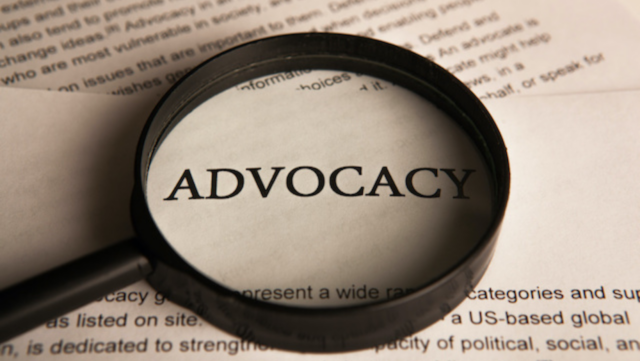In the dynamic landscape of public relations and communications, Issue Advocacy stands as a powerful and vital tool. It’s a comprehensive communications campaign strategy that advocates for, against, or seeks to neutralize a policy issue, with the aim of impacting businesses, associations, or individuals. In this blog, we’ll delve into the world of Issue Advocacy, exploring its significance and clarifying the distinctions between issue advocacy, lobbying, marketing, and corporate advertising.
So, what exactly is Issue Advocacy, and why is it so important in today’s fast-paced, interconnected society? Let’s delve into this crucial topic and explore its significance.

Defining Issue Advocacy
Issue Advocacy, in a nutshell, refers to a comprehensive communications campaign strategy and set of tactics aimed at advocating for, against, or neutralizing a particular policy issue. This strategy is designed to influence and shape the outcome of that issue in a way that benefits the interests of a business, association, or individual. An issue advocacy campaign involves crafting compelling narratives, building coalitions, and using various communication channels to advance a specific agenda or stance.
In simple terms, issue advocacy is about influencing the narrative around important policy topics to create a favorable environment for the concerned parties. However, it’s important to note that issue advocacy is not the same as lobbying, marketing, or corporate advertising.
Key Issue Advocacy Distinctions
Issue Advocacy vs. Lobbying
While both Issue Advocacy and Lobbying aim to influence public policy, they operate differently. Lobbying typically involves direct engagement with government officials to sway legislative decisions. In contrast, issue advocacy focuses on mobilizing the public, educating them about the issue, and building grassroots support. In the digital age, with 24-hour news cycles and the prominence of social and digital media,this method is essential for success in shaping public discourse.
Issue Advocacy vs. Marketing or Corporate Advertising
Marketing focuses on promoting tangible products or services, while issue advocacy centers around persuading people to engage with and share an idea or policy. Creating a compelling narrative, giving an idea its identity or brand, and making it easy for the public to understand and support are key components of issue advocacy.
Issue Advocacy is not to be Overlooked
A well-executed issue advocacy campaign can have far-reaching effects. It can break down barriers to doing business, drive policy change, and significantly impact a business’s bottom line. In the past, many corporate public affairs teams underestimated the value of a well-researched issue advocacy strategy, resulting in overlooked opportunities or failure to stop policy that negatively impacted business. The influence of issue advocacy should not be underestimated, and every industry or corporation should consider its role in shaping public opinion and policy decisions.

The Importance of Issue Advocacy
Shaping Policy Outcomes
Issue Advocacy is a powerful tool for influencing policy decisions. By engaging in well-planned advocacy campaigns, businesses, associations, and individuals can have a say in shaping policies that directly impact them. This can include advocating for regulations that favor their industry or opposing measures that could harm their interests.
Influencing Public Opinion
One of the key strengths of Issue Advocacy is its ability to sway public opinion. Through persuasive communication tactics and strategies, advocacy campaigns inform, educate, and mobilize the public, creating a groundswell of support or opposition to a particular policy issue.
Fostering Civic Engagement
Issue Advocacy encourages individuals and communities to get involved in the democratic process. By providing information and advocating for specific policies, it empowers citizens to take an active role in shaping the policies that affect their lives
Strengthening the Voice of Stakeholders
Businesses and associations can utilize Issue Advocacy to amplify their voice and protect their Businesses and associations can use issue advocacy to amplify their voice and protect their interests. It enables them to participate in the policy-making process effectively and ensure that their concerns are heard and addressed.
Resolving Complex Issues
In an increasingly complex and interconnected world, addressing policy issues requires a multifaceted approach. Issue Advocacy provides a comprehensive strategy for tackling intricate problems, engaging various stakeholders, and finding solutions that benefit all parties involved.
For more information on Issue Advocacy strategies, contact us today.

